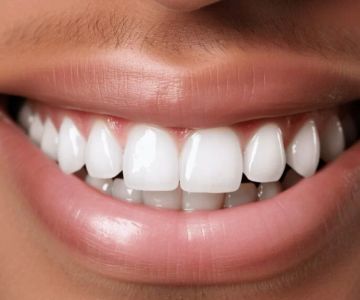Effective Ways to Prevent Cavities
Preventing cavities is crucial for maintaining good oral health. One of the most effective methods is through proper oral hygiene and regular visits to the dentist. Using a soft bristled toothbrush and fluoride toothpaste is a fundamental step. Brushing in the morning and at night after your last meal helps keep your teeth clean and free from harmful bacteria. An electric toothbrush can also be a great choice as it can do much of the work for you.
The Importance of Dentist Visits
The dentist plays a vital role in cavity prevention. They will examine your mouth with a mirror and may take X-rays to check the insides of your teeth and the bones that hold them in place. Fluoride treatments are often provided to strengthen your teeth. If cavities or gum disease are detected, additional follow-up appointments may be necessary. At the end of each appointment, many dentists offer new toothbrush, toothpaste, and floss to take home.
Educational Approach to Cavity Prevention
Understanding why cavity prevention is important is key. At UIC, dental hygienists like Amy Nowinski believe that when patients have the knowledge and understand the reasons behind oral health practices, they are more likely to adopt and maintain healthy habits. An evidence-based approach like UIC's Caries Management by Risk Assessment (CAMBRA) helps determine personalized treatment regimens based on each patient's risk level.
Food and Drinks to Be Aware Of
Sweet, sugary foods and candy, as well as starchy, refined carbohydrates, can increase the risk of cavities. It's important to remember that "sometimes" foods and drinks are okay for special occasions, but moderation is key.
Oral Hygiene for Children
For children, parents and caregivers have an important role. Wiping gums twice a day with a soft, clean cloth when the baby is young is a start. Once teeth come in, brushing twice a day with a soft, small-bristled toothbrush and plain water is recommended. Visiting the dentist by the baby's first birthday, using fluoride toothpaste, and seeking appropriate dental sealants are all part of a comprehensive cavity prevention plan. Drinking tap water with fluoride is also beneficial.
Oral Hygiene Tips
Proper brushing techniques are essential. Angle the toothbrush at a 45-degree angle towards the gumline and use short, gentle strokes. Don't forget to clean the tongue to remove bacteria. Flossing is equally important to remove plaque and food particles between teeth. There are various tools and techniques available for flossing, such as using a traditional string of floss, a floss holder, a floss threader, a water flosser, or tiny interdental brushes.
Conclusion
In conclusion, preventing cavities through oral health education involves a combination of proper oral hygiene practices, regular dentist visits, a balanced diet, and an understanding of the risks associated with certain foods and drinks. By taking these steps and being proactive about our oral health, we can significantly reduce the risk of cavities and enjoy a lifetime of healthy teeth and gums.


 Westgate Dental Arts
Westgate Dental Arts Coventry Family Dental
Coventry Family Dental Familia Dental
Familia Dental Dr. Daniel S. Fife, DDS
Dr. Daniel S. Fife, DDS Dentistry At Suburban Square: Michael I. Wollock, DMD
Dentistry At Suburban Square: Michael I. Wollock, DMD Comfort Care Dental
Comfort Care Dental The Importance of Oral Health Education During Pregnancy for a Healthy Pregnancy
The Importance of Oral Health Education During Pregnancy for a Healthy Pregnancy Why Skipping Dental Checkups Can Lead to Bigger Oral Health Problems
Why Skipping Dental Checkups Can Lead to Bigger Oral Health Problems Advantages of Porcelain Dental Restorations
Advantages of Porcelain Dental Restorations Best Tips for Brushing Your Teeth Properly for Healthy Gums: Essential Techniques for Oral Health
Best Tips for Brushing Your Teeth Properly for Healthy Gums: Essential Techniques for Oral Health How Can Diabetes Cause Tooth and Gum Problems? Preventing and Managing Oral Health Issues
How Can Diabetes Cause Tooth and Gum Problems? Preventing and Managing Oral Health Issues Healthy Habits for Promoting Good Oral Health and Hygiene: Tips for a Healthy Smile
Healthy Habits for Promoting Good Oral Health and Hygiene: Tips for a Healthy Smile